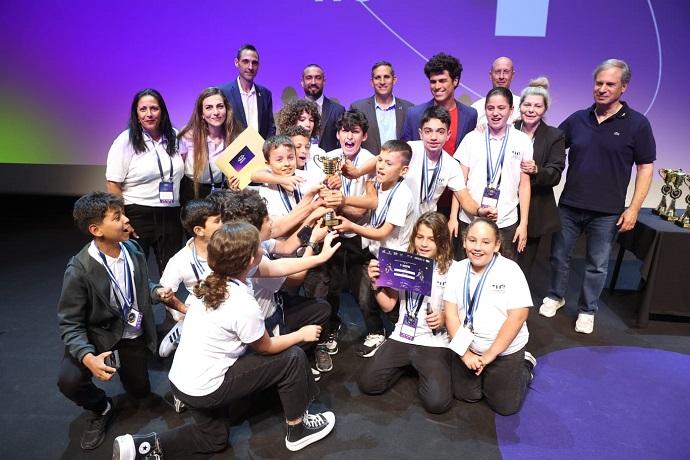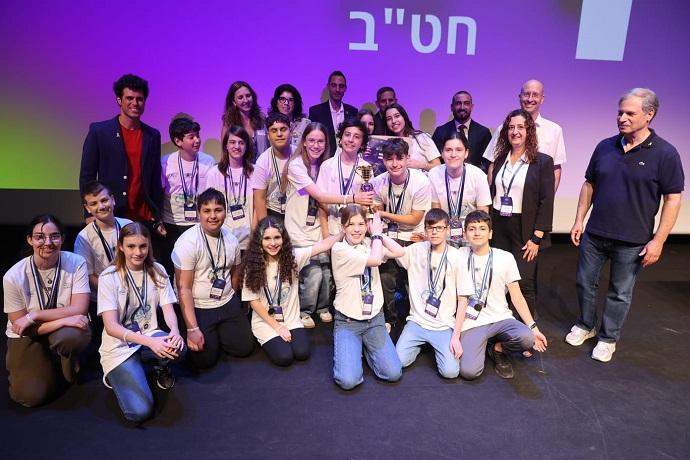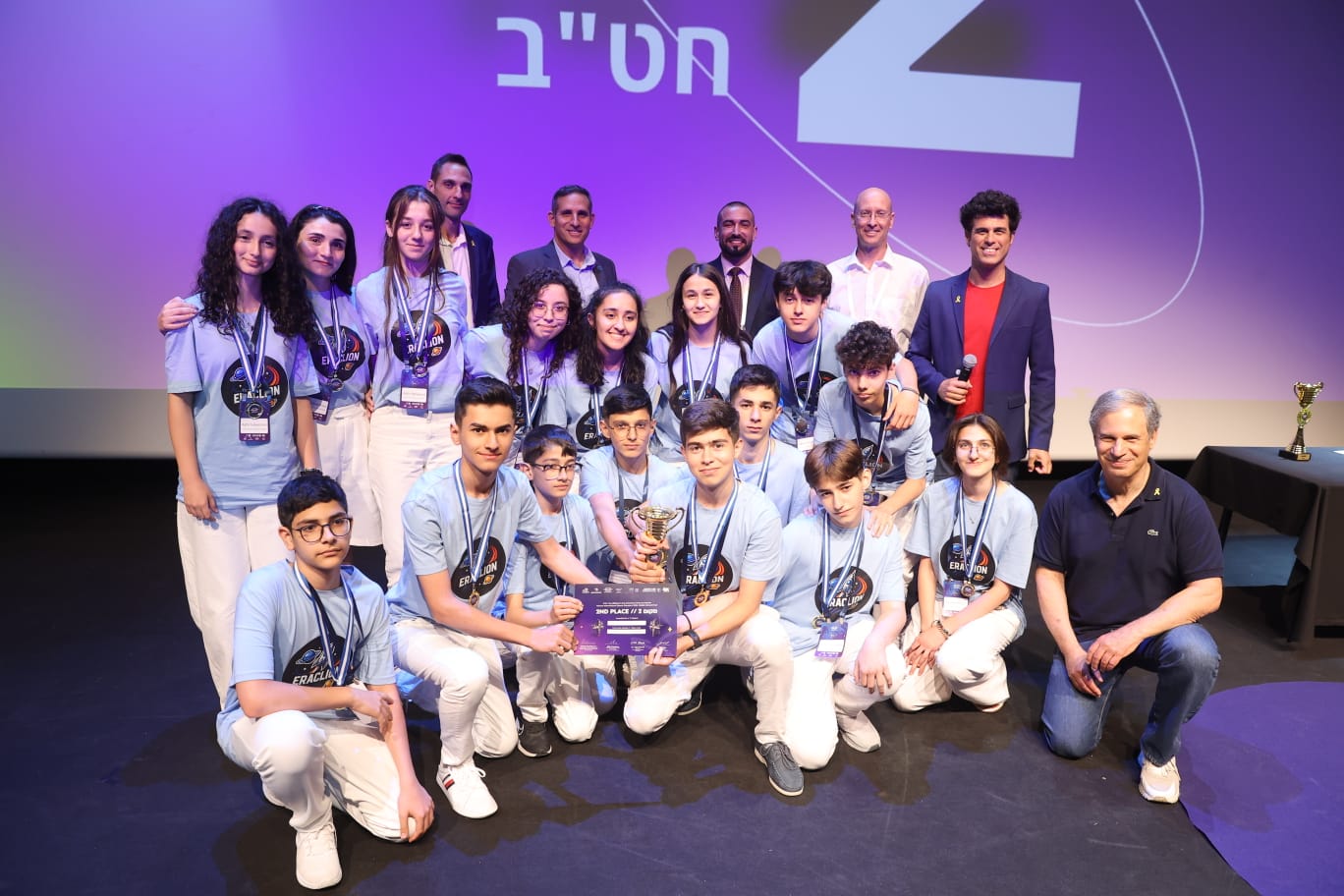Tel Aviv - In a festive and exciting atmosphere, the historic finals of the Ramon Space Olympiad at Tel Aviv University ended today (Thursday), when, for the first time in history, the Olympiad was truly international by virtue of the participation of students from Azerbaijan. The big winners: students from the Yitzhak Navon-Carmit Elementary School from Meitar, and students from the De Shalit Junior High School from Rehovot, who picked up the first places in their categories.
The event was successfully held for the 12th year, and this time the educational competition gained a new international dimension with the participation of 18 students from the School of Science and Technology in Baku, Azerbaijan.
Groundbreaking technological solutions and Azeri success
The winners of the first places in the two age categories (elementary and middle school) brought advanced engineering solutions that impressed the jury. The students of the Yitzhak Navon-Carmit Elementary School designed a smart, modular, electric screwdriver built of highly durable materials, equipped with smart sensors and fitting directly on the astronaut's glove. The advanced tool enables unique work capabilities even in conditions where there is no gravity.
The students from De Shalit in Rehovot, winners of the junior high school category, designed a revolutionary space station that operates using centrifugal technology and power, that produces artificial gravity. The station enables the cultivation of fresh vegetables and health industries and will prevent muscle atrophy and loss of bone mass – significant problems that astronauts suffer from in space.
The Azeri team won second place in the junior high school category, when they presented a groundbreaking space research station specializing in biotechnology, sustainability and human adaptation. The 18 young students, aged 13-14, were sent to the finals in Israel after being selected from 37 teams that competed in the final round in their country.


Here are the full results in the junior high school category:
- First place: Division A de Shalit Rehovot (Israel)
- Second place: Lysium Azerbaijan (Azerbaijan)
- Third place: Ben Gurion Ness Ziona (Israel)
And in the elementary school category:
- First place: Yitzhak Navon Carmit (Israel)
- Second place: Smilansky Rehovot (Israel)
- Third place: Al Kanatir Al Mazra'a (Israel)
"Science as a bridge between peoples"
Minister of Innovation Gila Gamliel emphasized the special importance of the event at a challenging time for Israel: "These Olympics are much more than a competition –they raise a flag of hope, innovation and international cooperation. Precisely in the midst of a difficult time for Israel, when we are dealing with security and diplomatic challenges, science and education continue to be bridges that connect peoples and countries." Brig. Gen. (res.) Uri Oron, Director of the Israel Space Agency, added, "Today's event, in which students from all over the country and Azerbaijan meet and present smart and creative engineering solutions, proves to us once again that the future of the global space industry is in good hands."
The cooperation with the Azeri space agency AZERCOSMOS, which began at the International Astronautical Congress in Baku in 2023 and was strengthened with the signing of the implementation agreement in Tel Aviv in April of this year, is leading to a further expansion of the competition. The space agency of the Ministry of Innovation, Science and Technology is already setting its sights to the future: next year, the Czech Republic is also expected to join the competition, with other countries also interested in this unique educational initiative.
A journey for 12,000 students
This year's competition began with the impressive number of about 12,000 students from 536 schools in Israel and 37 schools in Azerbaijan. The students went through a four-stage journey – preparation, online assignments, an engineering project, and a final – that ended with a colorful, exciting, and inspiring event.
This year's missions included two main challenges: elementary school students were required to design space suits suited to real space challenges, while junior high school students grappled with the design of full space stations, including residential, energy, and security solutions.
The Ramon Space Olympiad, which was founded with the aim of sparking the curiosity of Israeli students in the fields of science, engineering and space, continues to serve as a significant springboard for the future generation of the space industry. Over the years, tens of thousands of students have participated in the program, some of whom have gone on to academic studies and employment in the innovation and space industries in Israel and around the world.
The event ended with a festive announcement: "We will meet at the Thirteenth Space Olympics in 2026" - when it is already clear that it will be more international than ever.











